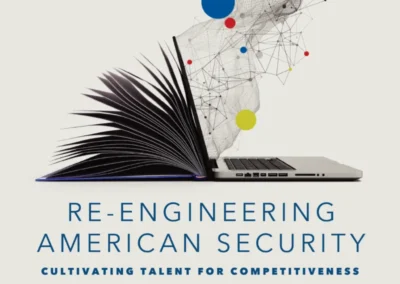Partner Publications
The Aspen Security Forum partners with organizations and executives working on the front lines of critical national security and foreign policy issues. Read their insights about solutions to pressing problems here.

Microsoft’s Security Copilot uses generative AI to automate threat detection, guide decisions, and embed security into business strategy. It helps organizations stay resilient by integrating risk management, compliance, and awareness into daily operations.

Cybersecurity is a business necessity, and Microsoft’s Secure Future Initiative (SFI) embeds security by design, by default, and in operations to address growing threats. Backed by 34,000 experts, SFI delivers measurable results like large-scale fraud prevention and widespread Zero Trust implementation.

The U.S. must invest in education to prepare youth for future tech jobs, ensuring competitiveness and national security. Recommendations include federal incentives, career-connected learning, and industry collaboration.

China's rising military and economic power challenges the U.S. and allies. A new strategy, Integrated Deterrence, combines military, economic, and diplomatic efforts to manage competition and deter aggression.

To maintain its global edge, the U.S. needs an education system that supports innovation and trains talent for key sectors like AI, 5G, and semiconductors, ensuring national security and technological leadership.

The U.S. must secure a domestic supply of Rare Earth Elements (REEs) to protect national security and economy, reduce dependence on China, and create jobs by revitalizing its REE industry and infrastructure.

Cybersecurity threats are growing, requiring stronger public-private partnerships and investment in advanced technologies. To protect digital ecosystems, security must be built-in, not bolted-on, with better collaboration.

Space systems are critical to U.S. security and infrastructure. To protect them, space should be designated as vital infrastructure, with policies and leadership focused on security, resilience, and innovation.

To combat COVID-19, global vaccine distribution must avoid nationalism. The biopharmaceutical industry is focusing on dose sharing, increasing production, removing trade barriers, and developing new vaccines.

The U.S. military must urgently integrate AI and autonomy to stay competitive against China and Russia. Current reliance on GPS and communications makes U.S. drones vulnerable. AI-driven systems are key for deterrence.
No results found.

